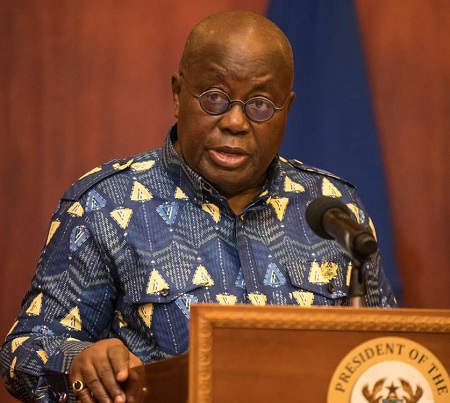President Nana Akufo-Addo
The government is teaming up with the World Bank to provide support to 10, 000 least performing basic schools in the country under a new programme.
Dubbed ‘Ghana Accountability for Learning Outcomes Project’ (GALOP), the programme is aimed at improving quality education at the basic school level.
Speaking at the launch at the Jubilee House yesterday, President Akufo-Addo said basic school education forms part of the building block of any educational system and that if the foundation is weak, the toil of the country to educate her young ones will be in vain.
In view of that, he believes “it is vital that our children receive the best of quality education if they are to progress to higher levels and ultimately acquire the skills and training that are essential to building our country.”
To that end, he indicated that “ten thousand low performing basic schools across the country have already been selected to benefit from the project and I am confident that the implementation of GALOP will help drive standards and quality in these schools.”
The World Bank Country Director, Pierre Frank Laporte, said GALOP will focus on improving learning outcomes in the identified basic schools across the country.
“Beyond these targeted interventions, GALOP will also support the development of an accountability dashboard and improve assessments,” he stated.
Apart from that, he said it will ensure that this support reaches out to schoolchildren in districts where their concentration is the highest in the country.
About GALOP
GALOP is a five-year project with the objective to improve the quality of education in low performing, basic education schools and strengthen education sector equity and accountability in Ghana.
The project is targeted at the 10,000 least performing basic schools (kindergarten, primary and junior high schools) and all special schools with direct interventions across the country.
It also focuses on strengthening accountability within the entire pre-tertiary education system.
GALOP is meant to enhance equity through targeted interventions to most disadvantage schools and accountability in quality education delivery.
The total project amount is $218.7 million.
It is jointly funded by the World Bank, Department for International Development (DfID) and Global Partnerships for Education (GPE).



By Charles Takyi-Boadu, Presidential Correspondent


